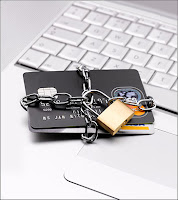More and more borrowers unable to borrow money traditional ways have turned to payday lenders, and that's only going to continue, according to PricewaterhouseCoopers' Precious Plastic 2012 report.
Payday lenders have had some bad press of late. If the 3,000% APRs weren’t bad enough, payday lenders have been accused of targeting poor students, sick pet owners and cash-strapped Casanovas in their bid to persuade people to take out the high-cost loans.
Here's six big reasons why:
Rates
Payday loans are expensive. Even though using APRs to compare payday loans against other forms of credit is a bit unfair due to their short-term nature, they are still an expensive way to borrow.
Flexibility
Credit cards are a rolling form of credit. This means that, as long as you make the minimum repayment each month, you can repay the debt whenever you want. The same goes for bank overdrafts; you can pay them off when you like.
Cheaper long-term borrowing
Continually rolling over payday loans and taking new loans to pay off existing loans can lead to a downward spiral of debt.
Extra protection
Section 75 of the Consumer Credit gives you extra protection if you make a purchase of £100 or more on a credit card and something goes wrong.
Your credit history
If you have a credit card and make repayments on time, it can improve your credit score and make it easier to borrow money in the future.
Borrowing amount
If you take out a payday loan you’ll need to pre-empt how much you’ll need to borrow; for example, £100 or £200. This might be more than you actually need. But if you use a credit card to make a purchase you only borrow the exact amount you need.
 Despite high credit card interest rates, consumers appear more willing to use their cards than they have been in the recent past. Credit card usage at some stores in 2013 jumped compared to the same period in 2012. The report measures consumers' same-store spending and how they choose to pay.
Despite high credit card interest rates, consumers appear more willing to use their cards than they have been in the recent past. Credit card usage at some stores in 2013 jumped compared to the same period in 2012. The report measures consumers' same-store spending and how they choose to pay.
